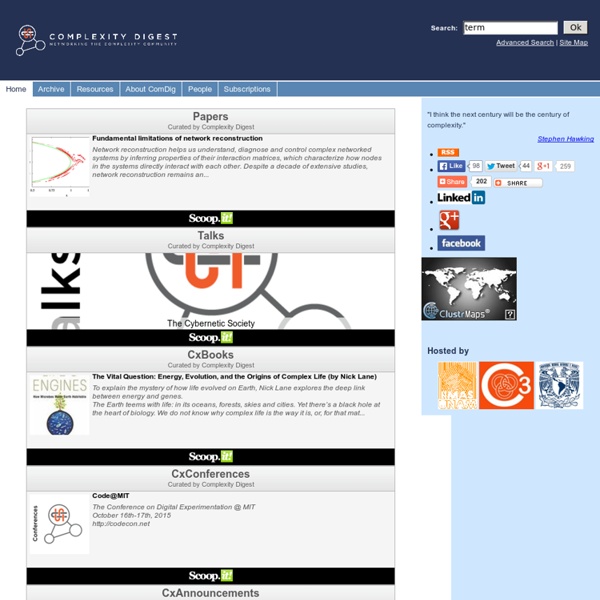



Nature Publishing Group : science journals, jobs, and information Kanzi Kanzi (born October 28, 1980), also known by the lexigram (from the character 太), is a male bonobo who has been featured in several studies on great ape language. According to Sue Savage-Rumbaugh, a primatologist who has studied the bonobo throughout her life, Kanzi has exhibited advanced linguistic aptitude.[1][2][3] Biography[edit] Born to Lorel and Bosandjo at Yerkes field station at Emory University and moved to the Language Research Center at Georgia State University, Kanzi was stolen and adopted shortly after birth by a more dominant female, Matata. Teco, son of Kanzi, was born June 1, 2010.[7] Teco has been exhibiting behaviors that resemble autism in young children.[8] Examples of Kanzi's behavior[edit] The following are highly suggestive anecdotes, not experimental demonstrations. Language[edit] See also[edit] References[edit] Further reading[edit] Joseph, John E., Nigel Love & Talbot J. External links[edit]
Australia's Telerobot On The Web IF you are enrolled in Mechatronics and Multibody Systems 319, please refer to this instruction sheet. Otherwise, if you are a visitor....... Follow these instructions to start using the telerobot: Step 1: Install the software from the Download page Step 2: Run the "lol login" application (a shortcut should have been provided on your desktop). Step 3: Log in with your UserID and password. Step 4: In the student hallway, select the telerobot task. Help on using the Telelabs system is available here. Step 6: Once you have entered the lab, you will be presented with a screen similar to this: Making a Move: Select your desired X, Y, Z, Spin, Tilt, Gripper values. Detailed explanations of the interface follow: Camera Panel: Provides visual feedback for the Telerobot's table-top, as well as providing controls for the X, Y, Z values. Select Camera/Zoom Panel: Contains two drop-down menus that allow you to select the camera (and quality) you wish to view with, as well as a level of zoom.
Koestler Parapsychology Unit The Turing Digital Archive home page MadLab - Manchester Digital Laboratory - home of creative community technology in Manchester History - Marie Curie www.dna.caltech.edu/courses/cs191/paperscs191/turing.pdf Podcasts and Downloads - Discovery Imperial Festival Materials, microbes, maths and medicine. Explore Imperial's ground breaking research with a packed schedule of activities, talks and performances for all ages. This year's Festival will take place on Friday 9 and Saturday 10 May 2014. The Festival is free and open to all, so drop in to put your questions to hundreds of scientists and engineers, take part in hands-on science demonstrations, peek behind the scenes of Imperial’s most exciting labs, and enjoy music, dance and comedy. This will be the third annual Imperial Festival and there will be even more activities, performances and demonstrations, and three new venues: Light Zone: From optical illusions to an invisibility cloak, explore the science of light, polarization and thermal cameras in an all new pop-up marquee. The full programme will be online after Easter but follow the Festival on Facebook and Twitter for all the latest news, sneak previews and behind the scenes photos.
What are confounding factors and how do they affect studies? What are confounding factors and how do they affect studies? Designing a study is not easy. Suppose we want to understand the relationship between obesity and morbidity. Confounding factors can have a huge impact on the results of both controlled and observational studies. While there are standard statistical techniques to adjust for these confounding factors, at times it’s not clear whether some factor is confounding or not. In this case, illness was a confounding factor that had not been considered by the CDC. Confounding factors can be accounted for using statistical techniques.
Disaster mitigation: a community based approach. | POPLINE.org Source: Oxford, England, Oxfam, 1989. x, 100 p. (Development Guidelines No. 3) Abstract: This book recounts the author's experiences with programs developed in Peru for lessening the impact of natural disasters. Add to My Documents Podcasts and Downloads - The Infinite Monkey Cage